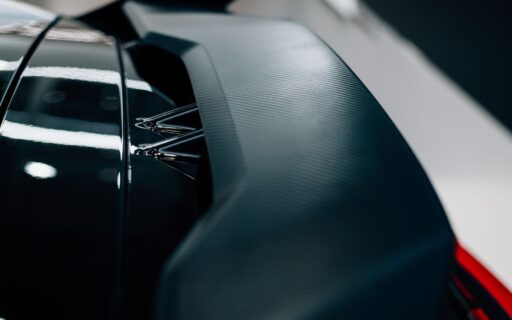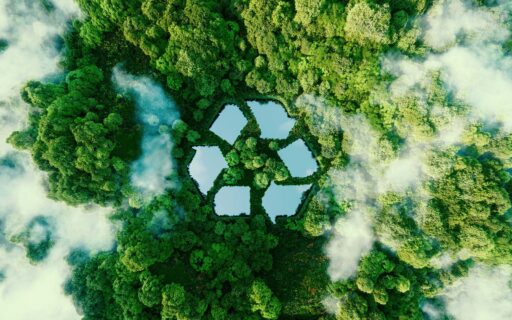Knauf Automotive
Plastics
Plastics in the automotive industry
Plastics are a diverse, extensive group of materials that are now used in manufacturing processes from a variety of industries. They can be encountered in many branches of industry, including electronics, automotive or furniture manufacturing. What are the distinctions between plastics and what is worth knowing about them?
Latest articles
Plastics
Types of plastics – advantages, disadvantages, definitions, chemical composition
Plastics are of considerable importance in industry today. What materials fall into this category?
What are plastic materials?
Among the numerous materials used in industry and other sectors, plastics have long gained significance. According to the most general definition, they are simply all materials that cannot be found in nature. Thus, these are both plastics created by processing synthetic materials and those derived from modifications of natural materials. In practice, they are mainly materials composed of polymers of various origins together with modifying additives. It should be borne in mind, however, that this is a very broad category – the various types of plastics can differ considerably both in terms of chemical composition and their properties, thus entailing different applications.
When was plastic invented? Although they are mainly associated with modern industry, depending on the definition adopted, it can be said that their history goes back much earlier. The first man-made plastic is usually considered to have been celluloid, invented in 1855. However, modified natural rubber and resin, which were used as early as ancient times, can also be included in this category. The beginning of the history of modern plastics dates back to the early 20th century, when Belgian chemist Leo Baekeland invented Bakelite, a fully synthetic plastic based on phenol-formaldehyde resin. The following decades brought many new developments in the field of synthetics – their development can also be observed in recent years.
How are plastic materials made?
Plastics are produced by proper processing, mixing and preparation of ingredients – these can be of natural or synthetic origin. The characteristics of the underlying raw materials have a decisive effect on the properties of the final material. For this reason, it is useful to know what goes into the composition of different plastics. These are primarily polymers, i.e. complex chemical substances of high molecular weight, obtained today mainly by synthesis.
The individual components are most often subjected to high-temperature heat treatment, which allows them to be combined with each other and thus – to produce plastics. The chemical composition of individual materials can differ, which significantly affects the specific application of a given material.
Plastics – environmental impact
As climate change continues, environmental issues are becoming more important for companies involved in manufacturing. However, it is worth bearing in mind that plastics do not have to be a threat to the environment – more and more companies are now offering sustainable plastics that minimize the impact of industrial processes on nature. Nevertheless, it should be remembered that the decomposition time of the vast majority of materials in this group is very long, which may involve the risk of water and soil pollution. For this reason, it is advisable to choose recyclable plastics – this group includes EPP and EPS used by Knauf Automotive.
Plastics – types
The design and manufacturing of plastic parts are currently of key interest in many industries. An important aspect is the proper selection of the material for a specific application. This affects many parameters of the final product – for example, the weight of a car prepared with EPP components can be reduced by up to 20%, which translates into numerous benefits in terms of ecology and reduced exhaust emissions. The main groups of plastics are thermoplastics, duroplastics and elastomers.
Thermoplastics
These are thermoplastic materials made from polymer resins. Within this category there are a variety of materials, such as:
- expanded polystyrene (EPS),
- polyvinyl chloride (PVC),
- polyethylene terephthalate (PTFE),
- polymethylmethacrylate (PMMA),
- polyethylene (PE),
- polypropylene (PP),
- polystyrene (PS),
- polyamide (PA),
- acrylonitrile-butadiene-styrene (ABS),
- polycarbonate (PC).
In addition, individual variants can be modified to obtain specific properties. An important advantage of plastics in this group is the possibility of high-temperature processing, which translates into virtually any customization of the shape of the final product. One of the methods used in this area is plastic injection molding.
Duroplastics
Duroplastics are polymers that are molded only once. This means that they cannot be further processed. However, they have the advantage of high strength and durability – you can often find claims that their properties resemble metal and ceramics. Duroplastics are most often made from recycled materials, such as cotton waste and phenolic resins.
Elastomers
This is a group of materials that are characterized by their ability to deform reversibly. They are primarily india rubbers, silicones and synthetic-treated rubbers. They are characterized by lightness and elasticity, and their main use is in the manufacture of tires, gaskets, liners and other parts that require a certain amount of stretch.
Plastics used by Knauf Automotive
Knauf Automotive uses various types of plastics to produce components for manufacturers in the automotive sector. We rely on proven materials and appropriate technologies, such as foamed plastic molding and overmolding. Among the expanded plastics used are EPP, EPS, rEPP and NEOPS. In addition, we provide support beyond the production itself – we also offer EPP texturing and a range of other services.
Rigid plastics are another group we process using plastic injection molding technology. Among them there are: PS, PP, ABS, PC, PC/ABS, PC/PMMA, PA, PP/EPDM, PA6 GF30, PP GF30. They are applied in the manufacture of exterior, interior, seating as well as clean mobility components for automotive.
Please feel free to contact our representatives for details of cooperation.


